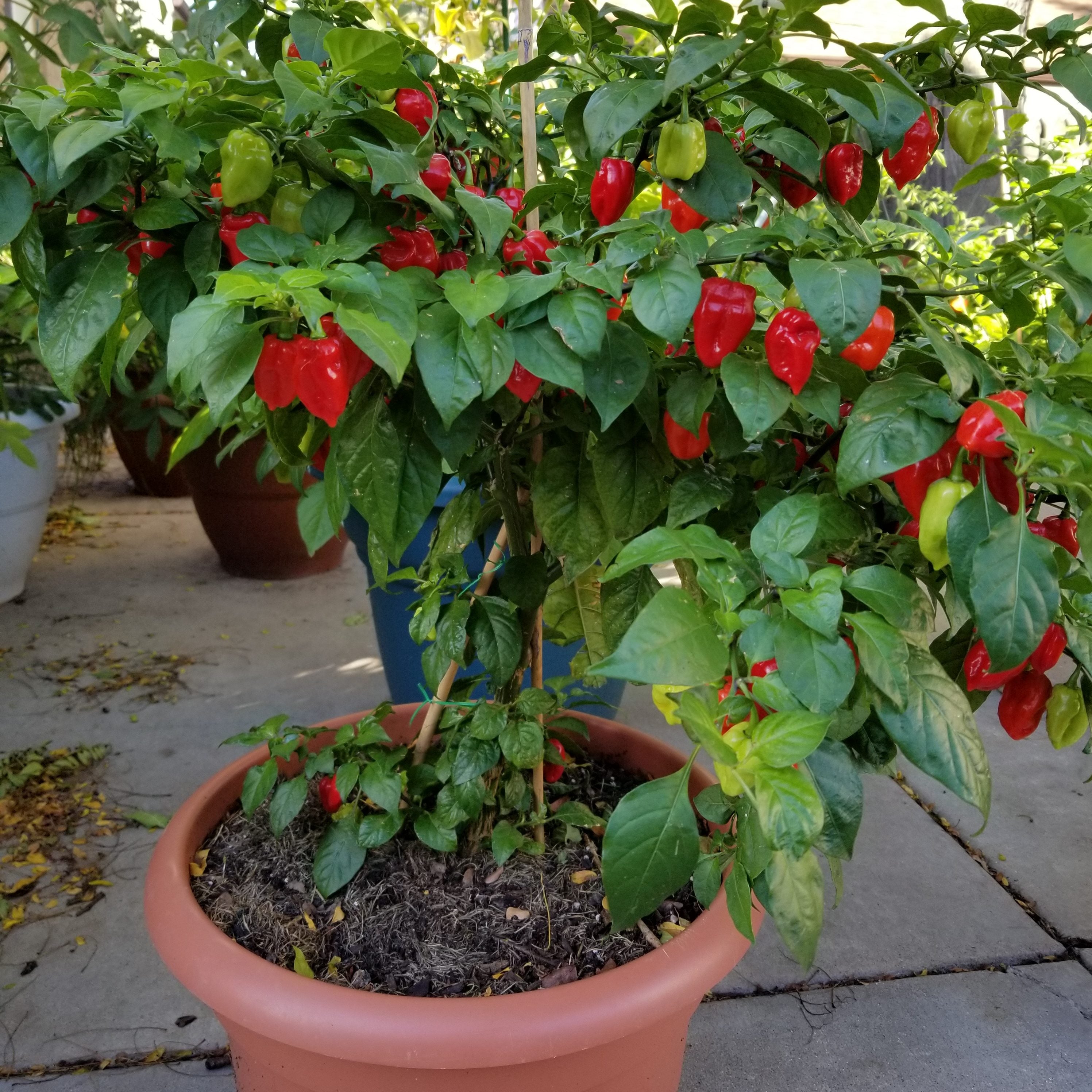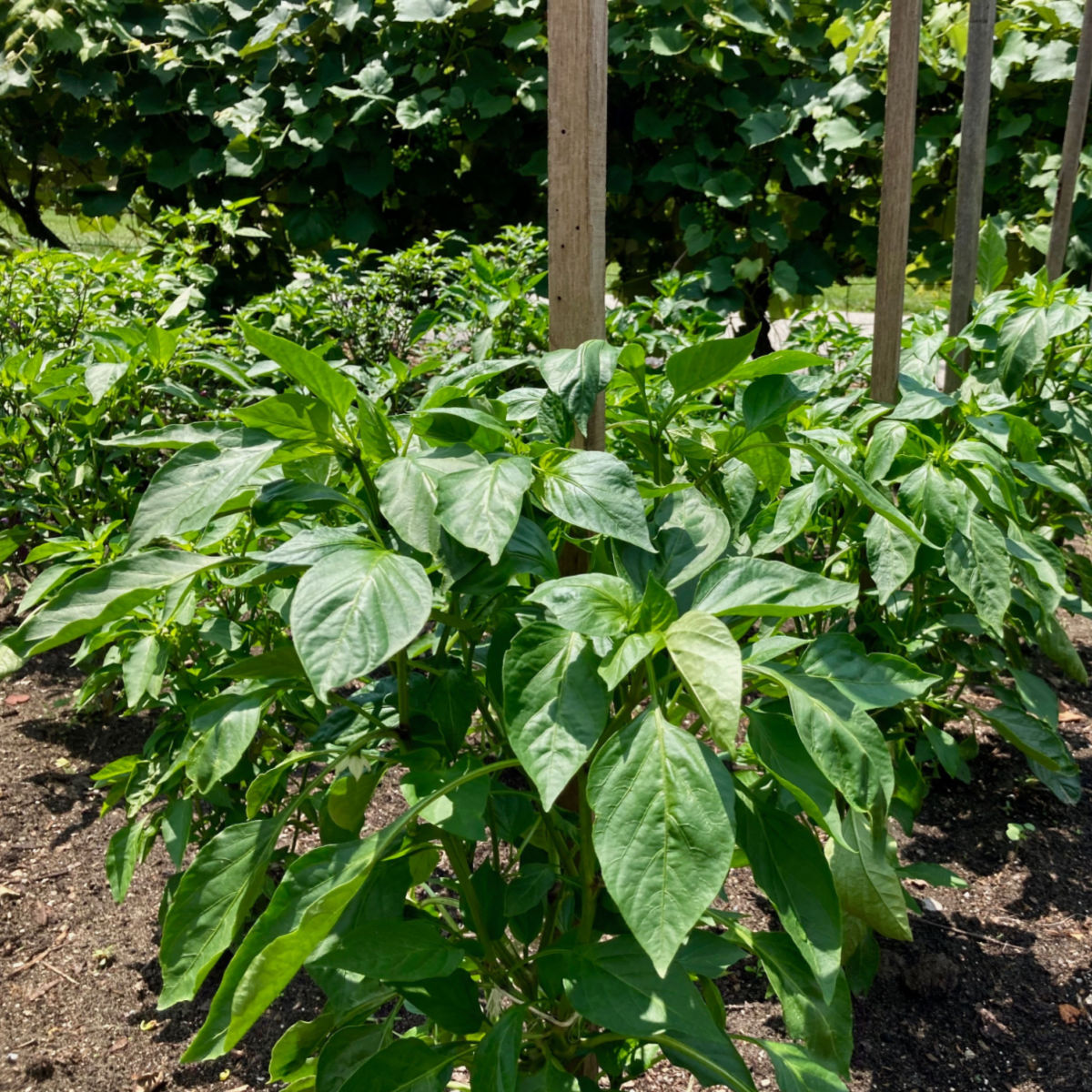Organic Vs. Synthetic Fertilizers: Which Is Best for Nurturing Healthy Pepper Plants?
In the world of supporting healthy pepper plants, the option between organic and synthetic plant foods stands as an essential choice with far-ranging effects. While both options purpose to give essential nutrients to sustain plant development, the subtleties of their impact on the soil, plant health, and the environment stimulate a dispute that echoes throughout the gardening area. Understanding the distinct advantages and possible risks of each fertilizer type is critical for pepper farmers looking for to enhance their returns while keeping a lasting and eco-conscious technique.
Advantages of Organic Plant Foods
Organic fertilizers use an environmentally-friendly and sustainable technique to nourishing pepper plants, supplying vital nutrients without making use of synthetic chemicals. These all-natural fertilizers are stemmed from natural sources such as garden compost, manure, bone dish, and seaweed, advertising soil health and wellness and biodiversity. Unlike synthetic plant foods, organic alternatives release nutrients gradually, making certain a consistent and balanced supply for pepper plants to thrive.
One significant benefit of natural fertilizers is their capability to boost dirt structure and water retention. By boosting soil health, organic plant foods promote helpful microbial task, which aids in nutrient uptake by pepper plants. Furthermore, natural fertilizers minimize the threat of chemical run-off, safeguarding water resources from air pollution and protecting the atmosphere.
Furthermore, natural plant foods add to long-term dirt fertility by advertising the development of helpful dirt microorganisms. These organisms aid break down natural matter, launching nutrients in a type that is easily obtainable to pepper plants. best fertilizers for peppers. By fostering a healthy and balanced soil ecosystem, organic plant foods sustain sustainable pepper cultivation techniques that benefit both plants and the atmosphere
Disadvantages of Synthetic Plant Foods
Artificial fertilizers, unlike their organic counterparts, pose various downsides when made use of to nurture pepper plants, impacting both plant health and ecological sustainability. One significant downside of artificial fertilizers is their tendency to leach nutrients from the dirt promptly. This quick leaching can bring about nutrient discrepancies in the dirt, causing plants to endure from deficiencies or poisonings. Furthermore, artificial fertilizers can hurt useful dirt microorganisms, such as earthworms and beneficial germs, interfering with the soil community's equilibrium.
Moreover, the overuse of synthetic fertilizers can contribute to water air pollution. Excess fertilizers not absorbed by plants can remove right into water bodies, leading to eutrophication, where algae blooms deplete oxygen degrees in the water, damaging water life. Artificial fertilizers are typically acquired from non-renewable resources, such as fossil gas, adding to carbon emissions and environmental deterioration during their manufacturing.
Nutrient Absorption Contrast
Efficient nutrient absorption plays an important duty in the overall wellness and development of pepper plants. When comparing synthetic and natural fertilizers in terms of nutrient absorption, natural fertilizers have the advantage of supplying a much more well balanced and slow-release source of nutrients (best fertilizers for peppers). Organic plant foods include a range of macro and trace elements that are not just valuable for the plants but likewise advertise healthy and balanced soil microbial activity, which helps in nutrient uptake. On the various other hand, artificial plant foods frequently supply a fast launch of nutrients, which can lead to leaching and overflow, leading to reduced nutrient absorption rates by the i loved this plants.
Furthermore, organic fertilizers improve dirt structure and water retention capacity, permitting pepper plants to access nutrients more effectively. This better dirt top quality facilitates root advancement, enabling much better nutrient absorption. Artificial plant foods, although originally enhancing plant development as a result of their high nutrient concentrations, may hinder long-term nutrient absorption by degrading dirt wellness with time.
Ecological Influence Factors To Consider

On the other hand, synthetic fertilizers, although often even more concentrated and immediately readily available to plants, can have damaging impacts on the environment if not used properly (best fertilizers for peppers). Their manufacturing requires high power inputs, leading to greenhouse gas emissions and adding to climate modification. In addition, the drainage of excess artificial fertilizers can infect water sources, leading to eutrophication and damaging aquatic communities.
Finest Plant Food Practices for Peppers
To attain this, it is essential to comply read review with best plant food techniques customized to the certain requirements of pepper plants. One critical practice is to execute a dirt examination prior to applying any kind of plant foods.
An additional crucial method is to fertilize pepper plants at the correct time. Generally, peppers take advantage of obtaining plant food at planting and then once more when they start to flower. Over-fertilizing can lead to vitamins and mineral inequalities and hurt the plants, so it is important to follow advised application prices.
In addition, selecting a balanced fertilizer with an NPK proportion that fits pepper plants' demands is fundamental. Organic fertilizers, such as compost or manure, can be excellent selections as they launch nutrients slowly and boost dirt structure with time. Nevertheless, synthetic plant foods can supply a quick nutrient increase when required. Inevitably, integrating synthetic and natural plant foods carefully can help nurture healthy and balanced pepper plants while lessening ecological impact.
Final Thought

Organic plant foods use a sustainable and environmentally-friendly approach to beneficial pepper plants, offering important nutrients without the usage of artificial chemicals. Unlike synthetic plant YOURURL.com foods, organic alternatives release nutrients gradually, ensuring a balanced and constant supply for pepper plants to flourish.
Artificial plant foods, in contrast to their organic counterparts, posture various downsides when used to nurture pepper plants, influencing both plant health and ecological sustainability. When contrasting synthetic and organic fertilizers in terms of nutrient absorption, organic plant foods have the benefit of giving a much more well balanced and slow-release source of nutrients.Additionally, natural fertilizers improve dirt structure and water retention capacity, allowing pepper plants to access nutrients a lot more successfully.